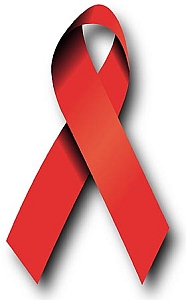Researchers at University of Liverpool in the U.K. are developing nanoscale therapies to treat HIV and AIDS, and collaborating with a company to take the drugs to market. The project is funded by a £1.65 million ($US 2.61 million) grant from the U.K.’s Engineering and Physical Sciences Research Council.
The aim of the project is to make antiretrovirals less expensive, with fewer side effects and more suitable for infants and children, and it plans to take advantage of recent work in Liverpool’s labs that modify current antiretroviral drugs for treating HIV. The university recently developed nanoscale particles — 1 nanometer equals 1 billionth of a meter — of antiretrovirals that can reduce the potential for toxicity and variability in response experienced by some patients to the drugs in their current form.
Among those needing more precise dosage are newborns and infants who contract HIV from their mothers, and there are currently few child-appropriate HIV drugs available. Drug nanoparticles have shown they can make it possible to administer therapies for other diseases in smaller doses, which can lead to reduced drug side effects and lower risk of drug resistance. In addition, the HIV nanomedicines developed at Liverpool disperse into water, which can make them easier to administer, particularly to newborns.
Liverpool’s team plans to further develop nanoparticle forms of antiretrovirals (ARVs) and conduct the first clinical trials of the therapies. The university also expects to engage Iota NanoSolutions, a Liverpool company formed to commercialize biomedical research in university labs. Iota NanoSolutions has a nanoparticle synthesis technology that will help produce the nanoscale antiretrovirals in clinical-grade quality and consistency.
Chemistry professor Steve Rannard — also a co-founder of Iota NanoSolutions — says, “This project is the first step towards taking the nanomedicine options that we have developed out of our labs and into the clinic, representing a significant milestone in the development of new HIV treatments.” Rannard adds, “If we can demonstrate real potential from our planned clinical work with healthy volunteers at the Royal Liverpool University Hospital, then our collaboration partner, Iota NanoSolutions, will take forward the further development and clinical validation of the ARV drug particles in HIV patients.”
Read more:
- Computer Simulation Models Effects of HIV Policies
- Lymphoma Drug Found to Uncover Dormant HIV
- Grant to Fund Drug Reformulation for HIV Therapy
- Engineered HIV/AIDS Vaccine Approved for Clinical Trials
- PhRMA: 88 HIV/AIDS Meds in Development at U.S. Companies
* * *


 RSS - Posts
RSS - Posts
[…] University to Develop, Commercialize HIV/AIDS Nanomedicines […]